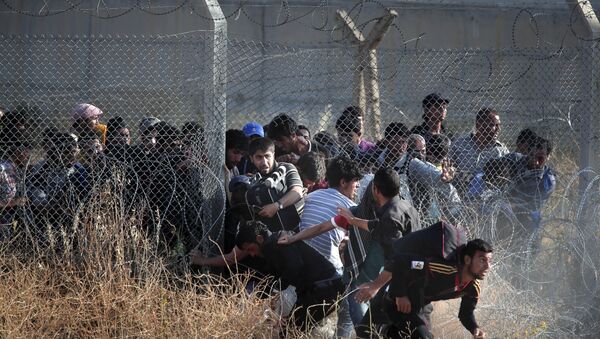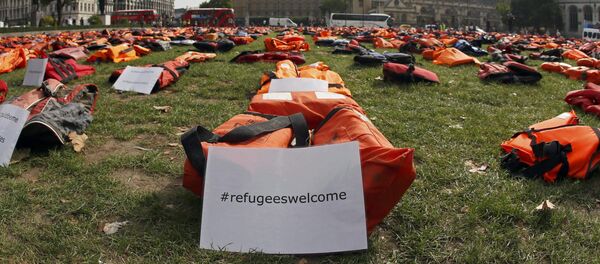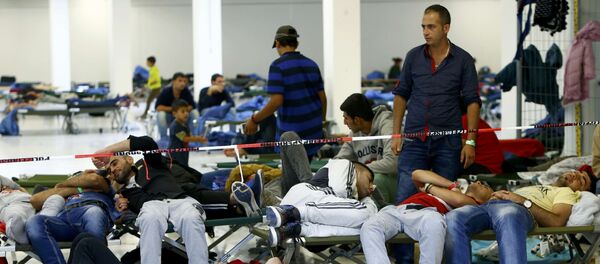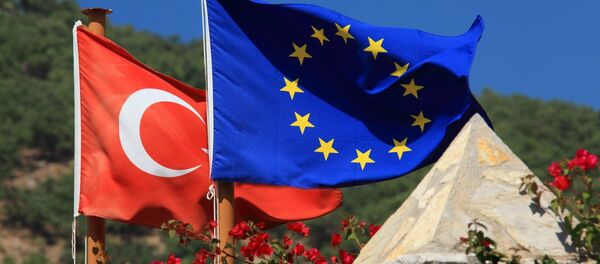The interview came after Turkish President Recep Tayyip Erdogan lashed out at the EU and the UN during his speech at a UN General Assembly session in New York earlier this week.
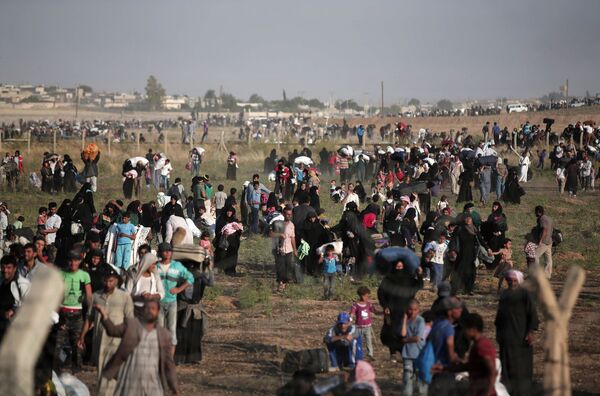
He blamed them for doing too little to support Turkey in terms of the reception and accommodation of asylum seekers and failing to comply with the obligations they'd agreed to. His country is currently home to three million refugees, over a million more than the number of migrants who applied for asylum status in the EU in 2015.
Speaking to Sputnik, Baydarol said that although the EU promised to allocate six billion euros for migrants-related issues, only 200 million euros were earmarked for the purpose.
This sum is insufficient even to cover the monthly expenses pertaining to the camps for refugees, according to Baydarol, who also pointed the finger at the UN.
"We certainly cannot say that the EU and the UN make enough efforts to help overcome the migration crisis. This can be explained by a number of differences that still exist between Turkey and the EU," he said.
Ankara and the EU are now involved in endless discussions about visa liberalization for Turkey in exchange for Ankara adhering to an agreement on refugees' reception.
In addition, Brussels is trying to put pressure on Turkey to make amendments to its anti-terrorism legislation, according to Baydarol.
He said that German Chancellor Angela Merkel's defeat during recent elections in her country could also have a significant impact on the further course of the migration crisis.
He recalled that winning the elections in Germany were those political forces which are known for their tough stance on refugees and the migration policy pursued by Merkel, who had more than once called for arriving at consensus with Turkey so as to resolve the migration crisis.
Baydarol warned that if the agreement on accepting refugees is suspended by Ankara, the EU may soon again face another influx of migrants.
"In this connection, the migration crisis can only be resolved by bilateral steps, namely, Turkey should agree on amendments to its anti-terrorism legislation, while the EU must ensure the liberalization of its visa regime for Turkish citizens," he said.
He also said that it's necessary to consider the current situation in Syria and the course of Turkey's Operation Euphrates Shield, as well as the positions of the major players in the region, including Russia, the United States and the Syrian Kurds.
"Only taking into account all these factors will help achieve a tangible success in solving the refugee issue," Baydarol concluded.
Syrians are the largest group of international refugees, as the war in Syria has left millions homeless. According to UN estimates, approximately 11 million people have been displaced since the beginning of the conflict in the Arab country in 2011, although most of these remain in government-controlled parts of Syria.

